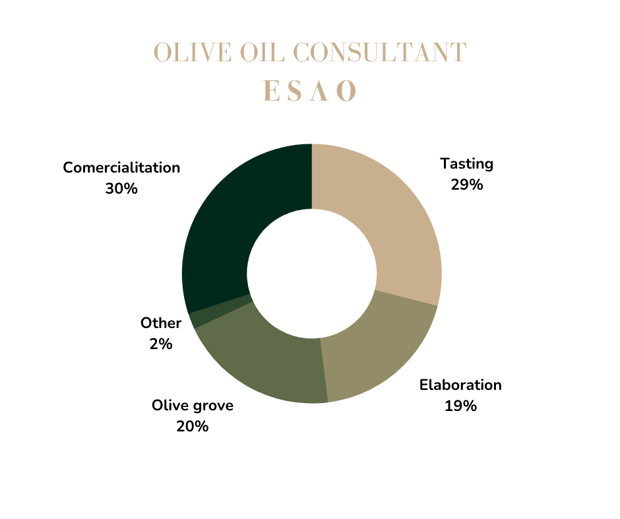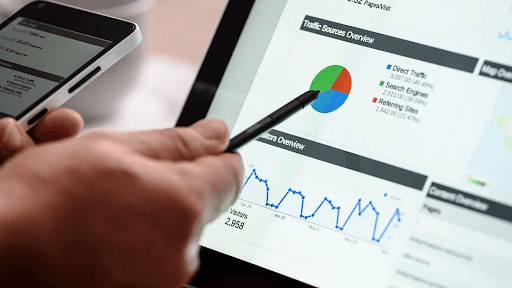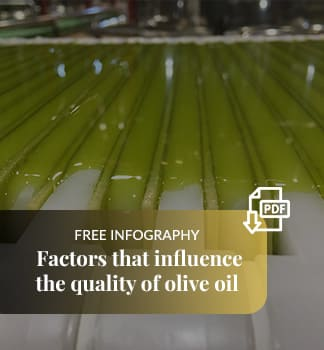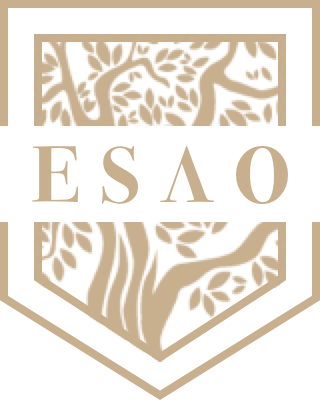Listen to this article
The olive oil business is part of the agri-food sector, and as such, it is being one of the sectors where efforts for development and innovation are managing to catch up with other sectors such as commerce or energy.
Olive oil is perceived by consumers as a symbol of health and a Mediterranean diet, this means that it is closely related to healthy living patterns.
Since the 2020 pandemic, health has risen to the top of society's list of concerns, a figure that is reflected in the first CIS barometer, which analyzes the consequences of the coronavirus.
The agri-food sector has been dragged into a transformation process that, despite having already started, has had to intensify the transformation. This means that virgin olive oil, being one of the healthiest fats that exists, has opted for innovation and modernization throughout the value chain of the olive sector.
Agriculture 4.0 is a reality and an increasingly supported bet.
New consumer habits, new business models, measuring citizen behavior patterns, along with digitization, robotics, artificial intelligence, are some examples of what Marketing has to include in its strategies.
The extraction of virgin olive oil is a meticulous process and if we want to obtain quality extra virgin olive oils we have to bet on training and professionalization.
Now, once we have managed to produce a great extra virgin olive oil, it has to be sold and this is sometimes more complex than the production itself.
Marketing has traditionally been in charge of defining the market niches we are targeting to bring our product closer to the potential buyer. It is an effective and objective way of approaching the market and consumers. It is not therefore about ideas or theoretical approaches, but about analyzing specific data, analyzing and drawing conclusions from these data and numbers and drawing up a strategic plan based on the analysis of all this data that Marketing tools have provided us.
For a company related to olive oil, regardless of its business volume or size, it is vitally important to have a marketing plan that saves time and money in achieving objectives.
In the commercialization of olive oil, marketing specifically helps to:
- Know what is the vision and clear definition of the objectives.
- Optimize and take advantage of the resources available to the company, or the project, both financial and human resources.
- Detect the opportunities that the company has and create synergies.
- Analyze what are the characteristics and position of the competition.
- Develop techniques and strategies to position in the specific market of interest.
All of this ultimately helps to minimize the risks of decisions based on unsubstantiated beliefs or ideas or not based on numbers.
In the sale of olive oil, as well as in general in the olive oil business, the olive consultant must know that the marketing strategy will be in charge of the search for potential clients and, together with the sales department, will close the marketing.
For example, if we go to the Asian market for the sale of olive oil, the marketing strategy will define us:
- The packaging to use. Depending on the market, the ideal format will be one or the other.
- The Target to go to. According to the characteristics of the company and those of the market it is targeting.
- It will define the web based on the brand image.
- You will use SEO in every online action we carry out.
- It will define which social networks we will use depending on the market.
- It will say the suitability or not of online and offline campaigns, depending on the positioning.
- It will indicate the need or not for a CRM in the company, depending on the volume of sales.
- It will select the ideal sales platforms according to the Asian market.
- It will analyze and monitor the attraction of potential customers, to pivot or reinforce the actions that we are taking.
What is decisive is knowing that marketing together with the sales manager will be two key pieces if we want to have a company that has a track record and profitability.
Olive oil consultants are very aware of the importance of marketing in commercialization and that is why it is an important part of training.
Traditionally, there are countries that have been characterized by the production of large quantities of olive oil, and there are others that have stood out for marketing and commercialization. That is why the figure of olive oil intermediaries or brokers help to position olive oil in the world, regardless of its quality.
However, as the culture of olive oil and the culture of health increases, which as we are seeing is already a fact, the consumer will value quality more and more, whatever the product, and in this way To be competitive, we have to work towards having a better product that helps us position our brand.
Gone was an obsolete olive oil industry where the websites were made by unqualified personnel and where speed and positioning were not taken into account.
Now we are fully aware that the marketing of olive oil, to be profitable, it must be professional, it must have a plan and a strategy to help us achieve the desired objectives.
Marketing in the commercialization of olive oil has to be part of a whole in the olive-growing company, that is why it is one of the four core areas into which the Master Olive Oil Consultant Certification certification is divided.
The tasting, the elaboration, the olive grove and the commercialization.

You cannot go into an olive oil business without having a basic understanding of these four areas. You can not sell olive oil if you do not know what product you have, what value its production has, what characteristics its origin has and to whom you want to sell it.
.png)



-2.jpg?width=600&name=Blog%20Banner%20(1)-2.jpg)
.jpg?width=600&name=foto%20master%20consultor%20arbol%20(4).jpg)

